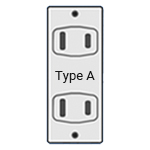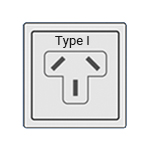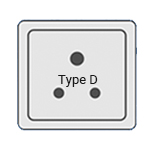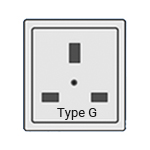China is a large country located in East Asia and is one of the most populous countries in the world. The capital of China is Beijing, and its flag consists of five golden stars on a red background. China has a diverse history and culture, and its culture, language, and cuisine are recognized around the world. China has a socialist system, with the Chinese Communist Party ruling the country.
Hong Kong has a lot to offer travelers, including a modern skyline, a variety of shopping destinations, and a vibrant streetscape, as well as major attractions such as Victoria Peak and Hong Kong Disneyland.
Macau is a special administrative region of China, located on the south coast of the country. Macau has a unique cultural character due to its Portuguese influence and is a world-renowned tourist destination. Macau’s landmarks include the Macau Tower, Sendoro Square, and the Grand Lisboa Casino.
1. China Quick Facts
Language Chinese, Cantonese
Religion China enforces regulations on religion. HongKong& Macao Buddhist/ Catholic
Currency Yuan (CNY, ¥) / HongKong dollar(HKD) / Macao (MOP)& Avos(A)
Visa A visa is required.




Power Plugs 110/ 220 V 50 Hz (A/I/G Type) / Hong Kong& Macao 200 V/ 50 Hz (D/G Type)
Capital Beijing
ATM ATM are also readily available, allowing you to withdraw local currency using your credit or debit card.
Use card
UnionPay is the only card accepted in China, and international VISA and MASTER cards are often not accepted in some places. In mainland China, cash is hard to come by and it’s common to have a card in your mobile phone, but Hong Kong is a fairly modern city with a variety of payment methods. There are many places where you can pay by card, but there are also quite a few places that only accept cash.
Useful APP
Google Maps
WeChat
2. Packing for your trip
Air plain Ticket
Dollar Flight Club has made it easier and cheaper to buy flights to the Airport.
SIM card
Airalo is the world’s first eSIM store that solves the pain of high roaming bills by giving you access to 200+ eSIMs (digital SIM cards) globally at affordable prices.
New member one-time use 15% discount coupon
10% discount coupon for multiple use by all members.
Pacsafe Pro safe 800 Luggage Lock
Good protection against snatchers or impulse thieves.
Universal Power Adapter
One of the most essential but most forgotten items in your travel gear? A power adapter!
Travel insurance
Prepare for risky situations Travel insurance can be a big help in the event of an emergency
GoPro HERO11
If you want to capture your own memories of your travels, GoPro is the way to go. It’s small, has great image quality, and is easy to carry around
shower filter
The water in Vietnam, as well as in Southeast Asia, is very limey, so we recommend buying and drinking bottled water.
It is also recommended that you take a shower filter with you when washing, as the limey water in Vietnam can cause Traveller’s diarrhoea disease.
Mosquito repellent
Mosquitoes are one of the most annoying things about travelling.
3. Transportation
Mainland China Traffic
Bus
Search for fares and stops – The site provides timetables, stops, and fare information for various forms of public transportation.
2¥ per 10 kilometers, increasing by 1¥ every 5 kilometers
How it works
The card works with 一卡通(Ikatong card), a type of transportation card. There is a card version and a cell phone version. The disadvantage of the card is that it needs to be loaded with cash, and the disadvantage of the cell phone is that it needs 4G. Both require a 20¥ deposit, which is returned upon return.
There are three ways to pay: cash, card, and phone app.
With the cell phone app and card, you can get a 50% discount when you get on and another 50% when you get off.
You can get the card at an Ikatong card vending machine or at a subway ticket window.
You can also use the Itongxing (亿通行) and Beijing Bus (北京公交) apps. Download the app, click on the Gongjiaoma (公交码) on the first screen, follow the prompts, and verify your real name to use the service. You don’t need to top up in advance, and you can pay via Alipay, WeChat Pay, etc.
Subway
Fares
The Itongxing app provides maps, timetables, and other information about the Beijing subway system.
The basic fare is 3¥, with additional charges depending on the distance. Up to 6 kilometers is 3¥, 6 to 12 kilometers is 4¥, 12 to 22 kilometers is 5¥, 22 to 32 kilometers is 6¥, and more than 32 kilometers is 1¥ for every 20 kilometers.
How to use the service
You can pay via card or mobile phone app, the same way you would for a bus.
Single-use cards can be purchased at subway stations and vending machines.
For taxis,
Fares
In the Beijing area, the basic fare is 13¥ within 3 kilometers and increases by 2.3¥ per kilometer.
Nighttime surcharges apply from 11pm to 5am. You can see the night surcharge by clicking on the night price section of the website above.
How to use and what to expect
We recommend using Didi Taxi (滴滴打车)
Pincher (拼车): A taxi that allows you to share a ride with others (cheaper).
You can check the type of car, car number, driver information, etc. on the app.
You can send your route to your friends via WeChat, and in case of danger, your emergency contacts and the police will be contacted.
You don’t need a phone app to use it, you can use it within WeChat.
Hong Kong
Another great benefit of using the Octopus Card is that you can use the Airport Rail to transfer to the Hong Kong Subway (MTR) for free within one hour of arrival at Hong Kong Station, Kowloon Station, or Tsing Yi Station, and use all modes of transportation including MRT, bus, ferry, and tram.
Hong Kong subway fares start at HK$5 and top out at HK$30, with distance-based fares.
HK TAXIOne of the most popular taxi apps in Hong Kong
Airport Express Line (AEL) from the airport to Hong Kong Station for HK$110 A round-trip smart ticket valid for 30 days is HK$205
Macau
Tubojet Ferry
Macau to Hong Kong
Ferries are mainly operated from the ‘Macau Outer Harbour Ferry Terminal’.
Transportation in Macau
Macau Transportation Card (MACAU PASS)
The Macau Transportation Card requires a 30MOP deposit, which is fully refundable when you refund it later. The minimum initial top-up is 100MOP, so you’ll have to pay a total of 130MOP when you first top-up.
Macau Bus
It costs 3 MOP with a transit card or 6 MOP in cash.
Light Rail
The basic fare for up to 3 stations is 4MOP with the transit card, which is 6MOP in cash.
For each additional station, a 1MOP surcharge will be issued.
Macau Taxi
The base fare is 19 MOP, with a 3 MOP surcharge for each piece of luggage and a 2 MOP surcharge for each additional meter over 240 meters.
Some taxis don’t accept cash along the way and only accept payment by card or Alipay.
4. Safety
Beijing is not as safe as Shanghai. Be careful traveling alone late at night, as there are not many streetlights outside of the main business districts.
There are no violent crimes, but there are pickpockets and scams.
In general, Hong Kong is one of the best places to live in the world. There is a strong police presence, so you shouldn’t have to worry about your safety. However, you should be wary of theft and pickpocketing in crowded shopping malls and tourist areas. It is also recommended to avoid walking in remote areas late at night as you may be exposed to theft, mugging, and other crimes.
Public security in Macau is safe. You will see a police officer every 200 meters. However, you should be wary of passport and valuables theft in crowded areas.
5. Climate
Temperate zone in the north
In the northernmost part, China is bordered by Siberia in Russia, and the rest of the northern border is bordered by the Gobi Desert. Summers are hot with some rain. Winters are bitterly cold and dry. During the peak summer months of July and August, temperatures can reach close to 30°C, while the lowest temperature in January is -23°C, and average high temperatures stay well below freezing from December through February.
South Central Temperate Climate
This is a subtropical climate with long, hot summers and short, mild winters. Monsoon rains fall between May and October, but it is quite humid throughout the year. The summer season in Chengdu runs from May to September. As the season ends, temperatures rise from the low 20°C to the low 30°C in July and August. From June to August, the average minimum temperature never drops below 20°C. Spring and fall are mild, and in January, the coldest month, Chengdu’s average minimum temperature is 2°C. Shanghai , Beijing , Guangdong , Chengdu , and Xi’an all fall into the temperate and subtropical zones.
Western Plateau Climate
There is the Qinghai-Tibetan Plateau. In summer, monsoon rains block the movement of water to the plateau. As a result, the plateau sees low levels of precipitation throughout the year, creating a dry climate. Oddly enough, the precipitation usually falls in the form of hailstorms. The southern and eastern edges are warm enough to support grasslands, but frost still covers the ground for about half the year. Toward the north, altitude increases and temperatures drop. In the extreme north, temperatures can drop to -40°C.
Southern subtropical regions
Divided into a hot dry season and a hot wet season. Summers in coastal Macau and Hong Kong are hot and humid, with average highs in the early 30°C, torrential rains, and powerful typhoons. From April through October, rainfall is plentiful and the average nighttime low never drops below 20°C. In winter, humidity drops and precipitation is significantly reduced: daytime temperatures are comfortable at around 18°C and nighttime lows drop to around 13°C in January and February. The islands in the South China Sea have a tropical oceanic climate.
6. price
The cost of living in Beijing is moderate
Water (1.5 liter bottle)4.03 ¥
McMeal at McDonalds (or Equivalent Combo Meal)36.75 ¥
Milk (regular), (1 liter)14.20 ¥
Gasoline (1 liter) 8.56 ¥
Hong Kong and Macau are more expensive than Beijing.
7. Travel precautions
It’s considered rude to point your finger at someone, and it can lead to a fight.
Black is considered a color associated with death in China, so it’s best to avoid black when giving gifts.
In China, you should avoid arguing with older people and it can be considered extremely rude to argue with them.
Traveling within China
Most areas of the country can be traveled relatively freely by plane or train.
However, it is important to note that entering military reserves and other areas requires prior authorization. If you plan to travel to areas that are not open to foreigners (such as Tibet), you must submit your passport and a letter explaining your reasons for traveling to public security two days before departure and obtain a travel document.
If foreigners stay temporarily in hotels, houses, etc. while traveling in China, they are required to fill out a temporary accommodation registration report and file it with the public security. If you are staying at a hotel, you can present your passport and the hotel will take care of the registration process for you.
8. Etiquette & Service Tip
Couples should avoid public displays of affection as much as possible; this is not typical for them.
If offered tea or dessert, it is polite not to decline.
In China, it is impolite to clear your plate. This is because clearing your plate can be interpreted as not having enough food, which can be offensive.
Tipping
Tipping in China can be seen as disrespectful by the recipient, so it’s best to avoid it.
There is no mandatory tipping culture in Hong Kong or Macau.
9. Holidays
2024 CHINA National Public Holidays:
1 Jan Mon New Year Holiday
10 Feb to 17 Feb Sat to Sat Spring Festival
4 Apr to 6 Apr Thu to Sat Ching Ming Festival
1 May to 5 May Wed to Sun Labour Day Holiday
10 Jun Mon Dragon Boat Festival
15 Sep to 17 Sep Sun to Tue Mid-Autumn Festival
1 Oct to 7 Oct Tue to Mon National Day Holiday
8 Mar Fri International Women’s Day *
4 May Sat Youth Day *
1 Jun Sat Children’s Day *
1 Aug Thu Army Day *
Hong Kong Public Holidays 2024
1 Jan Mon New Year’s Day
10 Feb Sat Lunar New Year
11 Feb Sun The Second Day of Lunar New Year
12 Feb Mon The Third Day of Lunar New Year
13 Feb Tue The Fourth Day of Lunar New Year
29 Mar Fri Good Friday
30 Mar Sat The Day Following Good Friday
1 Apr Mon Easter Monday
4 Apr Thu Ching Ming Festival
1 May Wed Labour Day
15 May Wed Birthday of Buddha
10 Jun Mon Tuen Ng Festival
1 Jul Mon HKSAR Establishment Day
18 Sep Wed The Day Following Mid-Autumn Festival
1 Oct Tue National Day
11 Oct Fri Chung Yeung Festival
25 Dec Wed Christmas Day
26 Dec Thu The First Weekday After Christmas Day
Macau Public Holidays 2024
1 Jan Mon New Year’s Day
10 Feb Sat Lunar New Year
11 Feb Sun The Second Day of Lunar New Year
12 Feb Mon The Third Day of Lunar New Year
29 Mar Fri Good Friday
30 Mar Sat The Day Before Easter Sunday
4 Apr Thu Ching Ming Festival
1 May Wed Labour Day
15 May Wed Buddha’s Birthday
10 Jun Mon Tung Ng Festival
18 Sep Wed The Day Following Mid-Autumn Festival
1 Oct Tue National Day
2 Oct Wed National Day Holiday
11 Oct Fri Chung Yeung Festival
2 Nov Sat All Souls’ Day
8 Dec Sun Immaculate Conception
20 Dec Fri Macau S.A.R. Establishment Day
21 Dec Sat Winter Solstice
24 Dec Tue Christmas Eve
25 Dec Wed Christmas Day
2025 National Public Holidays:
Wednesday, 1 January : New Year Holiday
Tuesday to Monday, 28 January to 3 February : Spring Festival
Friday, 4 April : Ching Ming Festival
Thursday to Friday,1 May to 2 May: Labour Day Holiday
Saturday toMonday, 31 May to 2 June : Dragon Boat Festival
Wednesday to Tuesday, 1 October to 7 October : National Day Holiday
Monday, 6 October : Mid-Autumn Festival
Hong Kong Public Holidays:
Wednesday, 1 January : New Year’s Day
Wednesday, 29 January : Lunar New Year
Thursday, 30 January : The Second Day of Lunar New Year
Friday, 31 January : The Third Day of Lunar New Year
Friday, 4 April : Ching Ming Festival
Friday, 18 April : Good Friday
Saturday, 19 April : The Day Following Good Friday
Monday, 21 April :Easter Monday
Thursday, 1 May : Labour Day
Monday, 5 May : Birthday of Buddha
Saturday, 31 May : Tuen Ng Festival
Tuesday, 1 July : HKSAR Establishment Day
Wednesday, 1 October : National Day
Tuesday, 7 October : The Day Following Mid-Autumn Festival
Wednesday, 29 October : Chung Yeung Festival
Thursday, 25 December: Christmas Day
Friday, 26 December: The First Weekday After Christmas Day
Macau Public Holidays:
Wednesday, 1 January : New Year’s Day
Wednesday, 29 January : Lunar New Year
Thursday, 30 January : The Second Day of Lunar New Year
Friday, 31 January : The Third Day of Lunar New Year
Friday, 4 April : Ching Ming Festival
Friday, 18 April : Good Friday
Saturday, 19 April : The Day Before Easter Sunday
Thursday, 1 May : Labour Day
Monday, 5 May : Buddha’s Birthday
Saturday, 31 May : Tung Ng Festival
Wednesday, 1 October : National Day
Thursday, 2 October : National Day Holiday
Tuesday, 7 October : The Day Following Mid-Autumn Festival
Wednesday, 29 October : Chung Yeung Festival
Sunday, 2 November : All Souls’ Day
Monday, 8 December: Immaculate Conception
Saturday, 20 December: Macau S.A.R. Establishment Day
Sunday, 21 December: Winter Solstice
Wednesday, 24 December: Christmas Eve
Thursday, 25 December: Christmas Day
